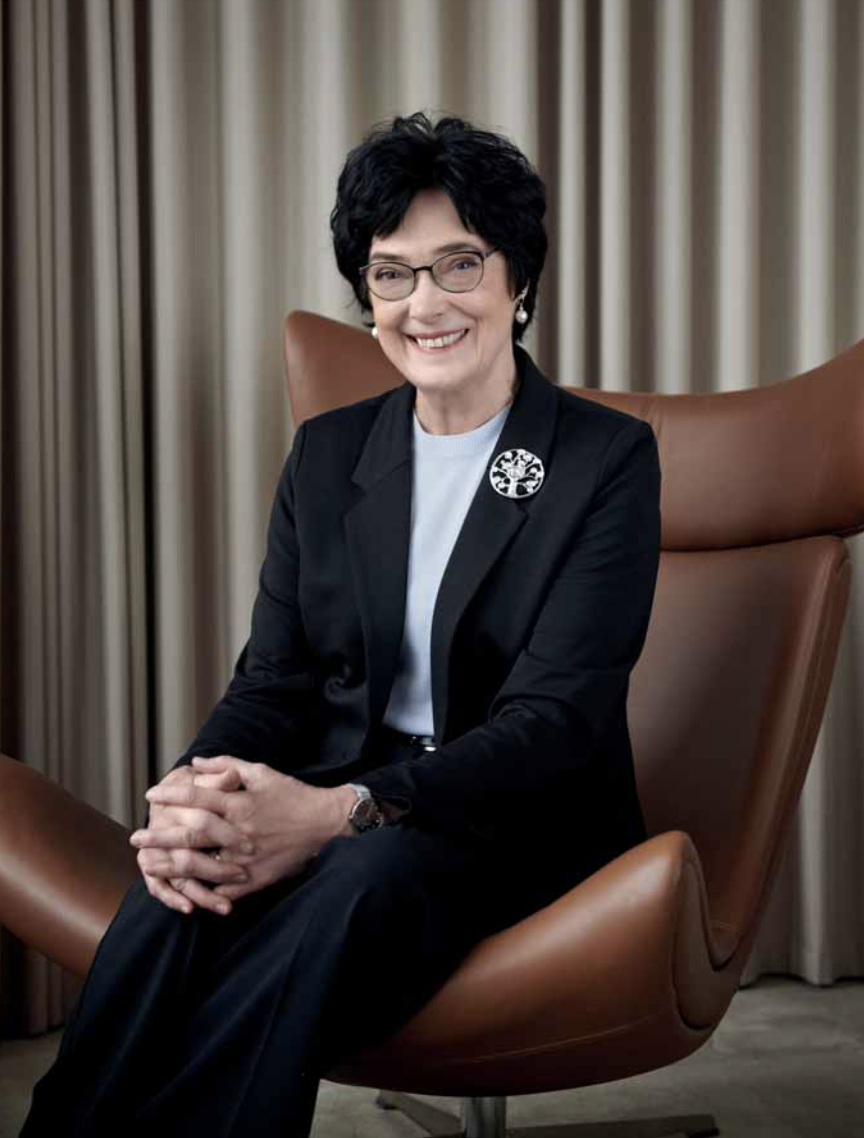“It is NECESSARY to look into the FUTURE”

Prof. Eva Zažímalová, President of the CAS
At the assembly session that took place in Prague Vinohrady in April 2022, the President of the Czech Academy of Sciences, Eva Zažímalová, gave a speech covering the Academy ́s activities regarding aid to Ukraine and the three priorities in terms of the science and research areas the Academy would like to focus on during the Czech EU presidency. Here is an extract of the speech that we are bringing to your attention.
The topic I am going to now cover considers our activities to help Ukraine. To begin with, I would like to thank my colleagues, not only in the Academy Council, but also in our institutes. A spontaneous wave of solidarity with Ukraine was, similarly to society as a whole, amazing. I appreciate that deeply.
I would like to emphasise that the Academy Council prepared a clear statement in the afternoon on the very first day of the war. We expressed our support to the invaded Ukraine and unequivocally condemned the unprovoked invasion of the Russian Federation – and we immediately started planning specific help for the people from Ukraine who were arriving to the Czech Republic. In the form of internships, we are channelling it to the scientists, PhD researchers, and postdoctoral students who are leaving their country due to the war. The possibility to continue their research is facilitated through the Researchers at Risk Fellowship program. Under this program, we are going to support at least fifty Ukrainian researchers by the end of 2023. Let me add that the Academy Council approved the first twenty-two applications on 12th April 2022.
The Academy Council also approved an extraordinary increase for the Excellence Support Programme for Prospective Employees – specifically by 50 million CZK. The institutes can start using these funds specifically to support their prospective employees from Ukraine (not only researchers) who reside in the Czech Republic due to the war. This way, we are able to support more colleagues, including outside the scope of the above-mentioned Researchers at Risk Fellowship program.
I would like to say that, in response to the aggression of the Russian Federation and the cooperation of Belarus in it, we have also terminated the agreement with the National Academy of Sciences of Belarus. The council of the Acade- my of Sciences has also recommended that the institutes suspend or terminate cooperation with Russian and Belarussian research institutes. We have made this recommendation especially because it is not possible to guarantee freedom of research without political interference. This fact is fundamentally at odds with the concept of science as we perceive it in our European area. However, under no circumstances does our decision apply to individual researchers from Russia and Belarus who express their fundamental disagreement with the war and regimes in their countries.
The institutes keep us updated on how they want to take part in common activities of the Academy of Sciences or which specific forms of aid they offer themselves, and we also inform the public about our activities – namely on our website in a separate section entitled “Help for Ukraine”.
However, it is necessary to look into the future as Aristotle put it: “It is not enough to win a war, it is more important to organise the peace”. In this regard, our work is still ahead of us.
The third topic of my speech is the agenda in connection to the preparation of the Czech presidency over the EU Council. Let me summarize the areas our activities are focused on. I would like to say that their selection is not random, but it is tied to the long-term Strategy AV21 research programs. So, they represent priorities through which we respond to the current challenges and problems of society, in accordance with our vision of carrying out “cutting-edge research in the public interest”. By no means do we consider this motto some kind of cliché or ‘label’. As the Czech society and its needs change, our institution, the Academy of Sciences, has gone through a transformation too. That is why, in 2014, at the initiative of the preceding Academy Council, under the leadership of my predecessor Prof. Jiří Drahoš, a strategy was born with the objective of multidisciplinary approach to addressing the current issues of today.
For the Czech EU presidency, we have therefore chosen the following three priorities. The first area focuses on Safe food and the use of new methods of genome editing in crop breeding. In so doing, we respond to future problems connected to food shortage and climate change, as well as a recent dramatic development in molecular genetics methods leading to a targeted and controlled genome editing using so-called molecular scissors.
The second priority our activities will concentrate on is Low-emission and safe energetics. After all, the situation today regarding energy just proves the urgency of this issue. The third area, Resilient society, covers various aspects: from resilient communities, families, and individuals to circular economy and food security, to trust in institutions, and resistance to the spread of disinformation.
Text: Prof. Eva Zažímalová, President of the CAS; Translation & Edit: Martina Hošková; Photo: CAS Archive

